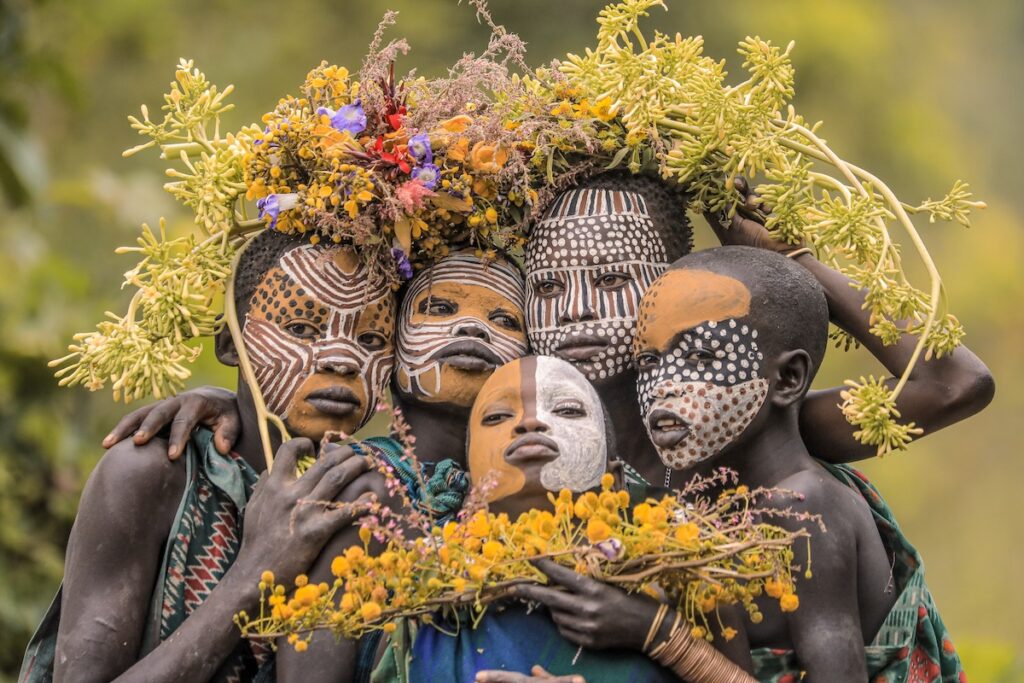In a world where technology and globalization are reshaping our daily lives, the people of the South Omo and West Omo Zones in Ethiopia beg to differ. These tribes, living in remote corners of the country and largely isolated from modern influences, have preserved their ancient cultures and traditions. They maintain a deep connection with their natural environment—the forests, rivers, mountains, and valleys—holding onto their own definitions of beauty, knowledge, and morals.
Among these remarkable tribes are the Surma/Suri. The Suri people of southwestern Ethiopia are agro-pastoralists residing in remote villages along the Kibish River, a tributary of the larger Omo River that flows into Lake Turkana. They cultivate crops such as sorghum, cassava, spices, and tobacco. During the dry season, the Suri also harvest honey. Cattle are central to their sustenance, with the average married male owning between 30 and 40 cows, which are typically only slaughtered for ceremonial purposes.
Suri women are known for their striking decorations, including clay plates worn on their lips and earlobes, body scarification, and brightly colored flowers adorning their heads. A truly unique way of defining beauty in their own style!
The Surma also practice Donga, a stick-fighting tournament that happens once a year. The young boys of Surma gather once a year to face each other in a battle that determines their status in the tribe to become chief, to be able to marry, to transition from boyhood to becoming a man, and to show their bravery.
For the curious traveler seeking an authentic experience of untamed beauty and genuine culture, I recommend visiting Surma—you will return with unforgettable memories!
Text and photos by Michael Metaferia
Instagram: michael.metaferia (https://instagram.com/michael.metaferia)

